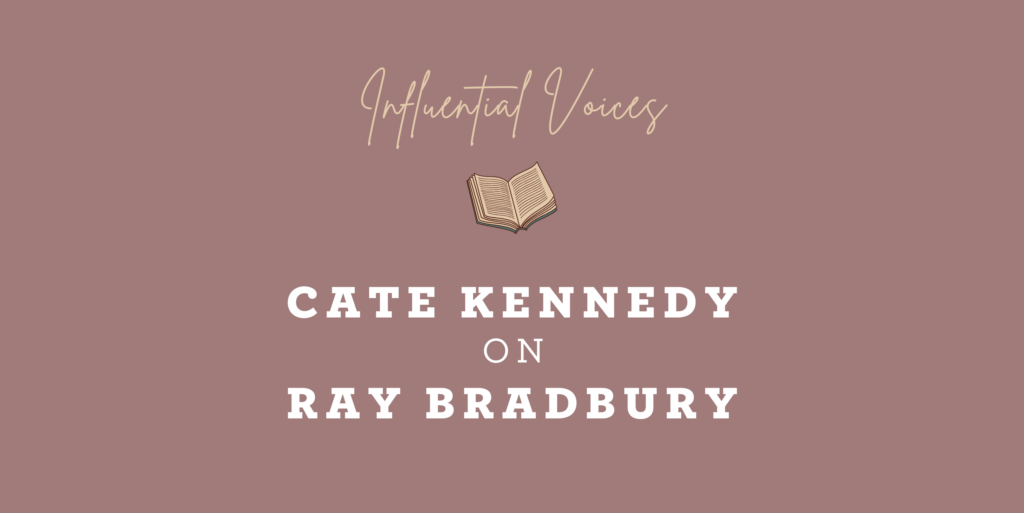
When, as a teenager, I happened across the stories of Ray Bradbury, it was as if something reached out and snapped the light switch on. I could see immediately that there was something going on which separated his work from the big science fantasy trilogies and series my schoolmates and I seemed to have become a bit fixated on at the time. The stories, although they were introduced to us as science fantasy (and had enough speculative and horror elements for any geeky, incense-burning, Pink Floyd-listening, woefully callow young wannabe), stepped effortlessly into another kind of territory. They were unabashedly, thrillingly, in love with language, and what language could do when it was pressed into effect. Bradbury wrote like a brilliantly capable, exuberant magician, words pouring from him in a welter, endlessly inventive not only with subject-matter but with the words themselves. Light poured off his stories like sun off a river — dazzlingly, blindingly.
The moment I plunged into Dandelion Wine I could see in an instant that this was how it was done — and why reading much of the speculative fiction in my high school library had been a leaden and pretty joyless experience.
For an abashed, self-conscious 16-year-old embarrassed by excessive displays of emotion, it was revelatory to find a writer — and an adult, come to that — whose chief joy, it seemed, was to be unabashed, and stories which were unapologetically brimming with sentiment, jazzed on the exuberant power of language and its possibilities. Over successive school holidays, I worked my way through his short story collections like packets of chocolate biscuits. Junot Diaz, writing in the New Yorker after Bradbury’s death in 2012, said his work ‘snapped science fiction out of its adolescent fugue’, and all I can add is that it snapped me out of mine, quite literally.
To paraphrase EB White, analysis of how ‘literature’ works is a bit like dissecting a frog: few people are interested and the frog dies of it. I can see now, with some textual analysis under my belt, that it was Bradbury’s lyricism and flowing, incantatory syntax (which never felt strained or engineered) which created just the right degree of defamiliarisation to make his imagined worlds feel viscerally arresting, charged with possibility. Back then, I never analysed how he was doing it, and didn’t need to. I just hooked up like he was an IV.
He was the author, though, who made me WANT to work out how he was doing it, and attempt to find the magic balance in my own mawkish, tentative efforts later. His prose seemed to make the lyricism itself catalytic and intrinsic to the storyline. I relished every bite, recognising the nightmares of childhood, the febrile imaginings of lonely, sensitive children (Bradbury’s first short story collection Dark Carnival was originally intended to be called A Child’s Garden of Terrors), his dystopian horrors and his passionately rendered, unapologetically sentimental nostalgia for childhood — something he wrote about with piercing poignancy and acuity. I devoured this along with that moving mixture of apprehension and hope for the future which runs through his speculative fiction.
Fahrenheit 451 both scared the bejesus out of me and encapsulated the ‘locked and loaded’ feeling of being seized, seduced and taken over by a piece of fiction, and the glimmering politicising awareness that reading itself is a subversive act. Like several speculative authors (Margaret Atwood amongst them), Bradbury’s work was revisited with flurries of anxious attention in the aftermath of Donald Trump’s victory, with his themes seeming more prescient and resonant than ever. It was not Fahrenheit 451 I shakily sought out after the American Presidential election result, though, but the barbed and hypnotic story, ‘The Sound of Thunder’, a time-travelling fable I remembered from one hot afternoon, aged 17, reading backwards and forwards, noting and absorbing everything Bradbury was doing to build the gnawing, discomforting psychological atmosphere of the story. The plot ran tense and relentless, and yet it felt entirely composed of flights of poetic description. The effect is uncanny.
For many years Bradbury’s large red Collected Stories edition (of 100 of his best-known stories) has acted as a stabiliser in my various bookshelves, wedged tightly at the base like a foundation stone. I could move it now that I have better constructed bookshelves, but I don’t want to. I see that hefty red spine with its plain type saying BRADBURY and think, if I can get to a hundred with a tenth of his verve, passion and boundless reach, I’ll count myself lucky.
About the Writer
Cate Kennedy writes fiction, non-fiction and poetry and lives in central Victoria. Her work has been widely published and anthologised and she is currently working on a new novel. Both her short story collections, Dark Roots and Like a House on Fire, are on the Victorian school syllabus. As a taster, Cate suggests reading Bradbury’s last published piece before he died, ‘Take Me Home’, a short essay published in the New Yorker in June 2012, on writing, memory and much else.
More from Writing NSW
Check out our full range of in-person writing courses in Sydney, our online writing courses and our feedback programs to see how we can help you on your writing journey. Find out about our prizes and opportunities, as well as writing groups across NSW, and sign up to our weekly newsletter for writing events, opportunities and giveaways.
